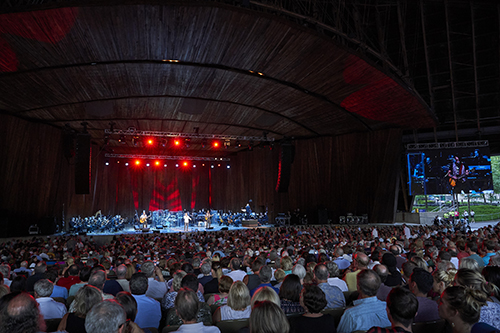by Timothy Robson
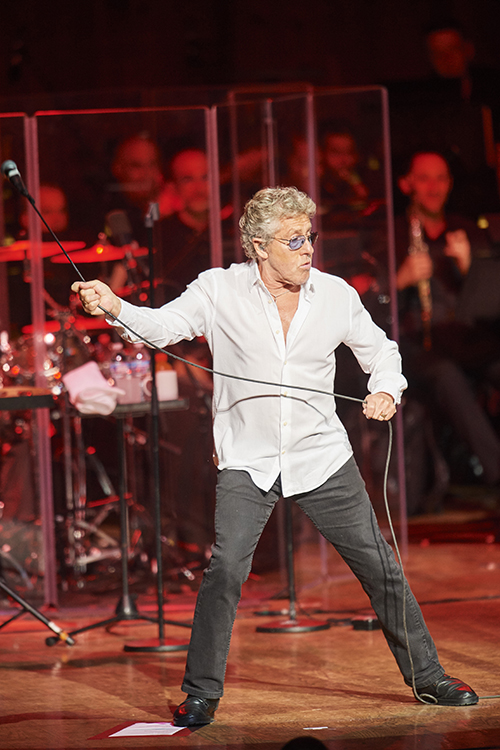
Tommy was largely the inspiration of one of The Who’s founding members, Pete Townshend, but was collaboratively created in the recording studio in 1968 and early 1969, and released in the US in May 1969 to international critical acclaim as the first significant “rock opera.” In fact, the first version of the work is more accurately described as a song cycle or cantata, with members of The Who singing the various characters and Daltrey primarily taking on the role of Tommy.
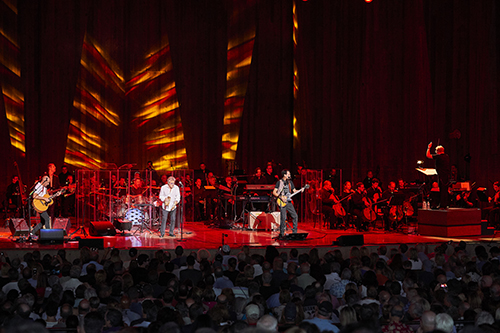
And as with any good repertory opera, The Who have returned regularly to Tommy over the years. Townshend and Daltrey are the two remaining founding members, but the current members of the band put their own stamp on this classic. Simon Townshend, Pete’s younger brother, took on some of Pete’s vocals as well as guitar. Frank Simes, The Who’s current musical director, played guitar and helped with vocals. Other performers included Jon Button, bass and Loren Gold, keyboards. Drummer Scott Devours has been a semi-regular sub with the group since 1996.
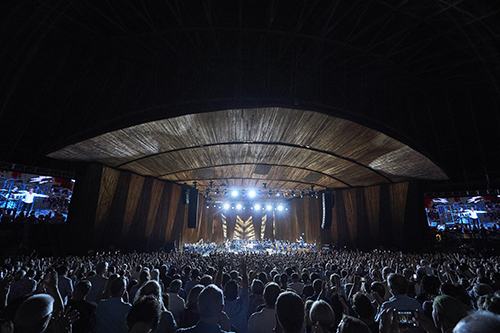
Although Tommy is seriously disabled, he is able to feel the vibrations of a pinball machine and becomes a “pinball wizard.” He is miraculously cured of his disability and starts a new religion. His followers eventually turn against him, resulting in Tommy’s apotheosis. An overture introduces musical themes of the opera, and an instrumental interlude (“Underture”) represents Tommy’s LSD hallucinations.
At 74, Roger Daltrey still has the vocal chops to sing the long role (90 minutes, more or less continuously). A few of the songs may have been lowered slightly in pitch, but Daltrey’s high tenor is immediately recognizable. He has also retained his trademark stage moves, including the best microphone twirl in the business. Townshend’s guitar playing was brilliant, as was his evocative channelling of his brother’s vocals. Devours was remarkable in his replication of Keith Moon’s complicated album originals.
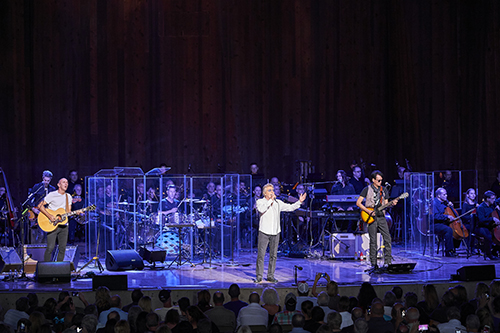
The members of TCO could be seen playing their hearts out, but the sound design was completely in favor of the rock band. The Orchestra became a gold-plated back-up ensemble, largely inaudible except at a few climactic moments when the winds and brass blazed through. This was definitely Daltrey and The Who’s show. But, with apologies to The Cleveland Orchestra, no disappointments here. The performances by Roger Daltrey and The Who band were exciting, and how many singers can return to the music of their youth fifty years later and perform it convincingly? Roger Daltrey did — memorably so.
After the conclusion of Tommy, Daltrey and The Who band performed two classics: “Who Are You” and a brilliant “Baba O’Riley,” with its complex synthesized patterns and visionary lyric of a “teenage wasteland” that is as relevant today as it was in 1971. Electric violinist Katie Jacoby added a sensational twist at the end. The show closed with a track from Daltrey’s new solo album As Long As I Have You, a beautiful, wistful ballad, “Always Heading Home,” featuring Loren Gold, keyboards, and Jon Button, bass.
Photos © Roger Mastroianni, Courtesy of The Cleveland Orchestra.
Published on ClevelandClassical.com July 12, 2018.
Click here for a printable copy of this article



